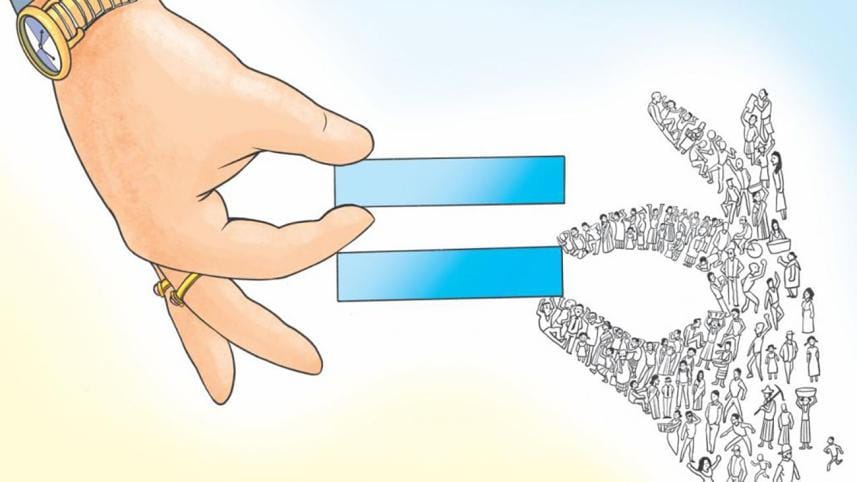Tackling inequality is a political choice

The world has made impressive strides in reducing extreme poverty, but that progress has slowed considerably in recent years. The problem is clear: eliminating extreme poverty requires tackling inequality.
The good news is that inequality between all people worldwide has declined since 1990, mirroring the reduction in poverty. The bad news is that within-country inequality has risen. Compared to 25 years ago, the average person today is far more likely to live in an economy with higher inequality. And, beyond income and wealth, there are still large disparities—between and within countries—with respect to food and nutrition, health care, education, land, clean water, and other things essential for a full and dignified life.
Far from being inevitable, inequality is a political choice. Governments that want to reduce income and wealth gaps and improve the lives and opportunities available to their poorest have shown both effort and some progress. Since 2015, the United Nations Sustainable Development Goals—specifically Goal 10—have brought unprecedented attention to this issue.
And at this month's High-Level Political Forum, the international community has its first chance to take stock of the progress made toward combating inequality, both globally and at the national level. To that end, the World Bank Group and the UN Department of Economic and Social Affairs recently held a preparatory meeting to highlight how governments can step up their efforts in this area. The meeting produced several key findings and outcomes:
First, inequality is frequently driven and compounded by a combination of social circumstances, such as the composition or economic status of one's family, geographic location, ethnicity, and gender. These factors can all contribute to inequality of opportunity, and all are exacerbated by income inequality itself. And, because inequality of opportunity reduces social mobility from one generation to the next, it creates persistent inequality traps.
Second, to remove barriers to opportunity, governments must address the root causes of inequality by identifying and eliminating discriminatory laws, not least those that actually criminalise disadvantage. Moreover, given that inequality largely begins in childhood, governments must invest far more in high-quality universal health care and early childhood education. Only by supporting the creation of human capital from an early age can we ensure that inequalities in one generation aren't passed on to the next.
Third, such investments will require additional domestic resources. In general, progressive taxation is critical for increasing government revenues. But so, too, is expanded administrative capacity, so that governments can prevent tax evasion and limit illicit flows of resources across borders. With better resource mobilisation, social transfers and protections can become powerful tools for reducing income and wealth disparities.
Fourth, governments need to ensure that the benefits of progressive policies accrue to those who need them most. To that end, policymakers should solicit the perspectives of their underprivileged citizens when crafting and implementing new measures to reduce poverty and inequality. Giving a voice to the poor would yield more authentic analyses of current challenges, while ensuring that resources are directed to where they are needed most.
Finally, the lack of data is a barrier to effective policy design. To map inequality comprehensively, decision-makers must be able to answer the question of who benefits from any given policy, law, political structure, or cultural norm. Education, climate, health, food security, and infrastructure are just a few of the many areas where governments need more and better data. Though data collection is an expensive, skill-intensive exercise, recent innovations have substantially expanded the options available for governments.
For example, traditional data sources such as household surveys, which generally fail to capture incomes at the top (including the top 1 percent), are now being complemented by administrative and tax data to fill in longstanding knowledge gaps. Nonetheless, we will need to develop more and better metrics that capture various manifestations of inequality so that all actors—governments, stakeholders, multilateral institutions, civil society organisations, and the media—can directly measure progress toward achieving SDG 10.
The barriers to inequality-reducing policies often reflect a lack of political will to remove them. Policymakers should recognise that large and persistent disparities between groups are bad not just for the economy, but also for political and social stability. Social cohesion and public trust in institutions cannot be sustained in the absence of equal opportunity and policies that reflect unifying narratives.
World leaders will take stock of the progress made toward the SDGs at a summit in September. They must reaffirm their commitment to the global goals, and specifically to SDG 10. The World Bank Group will focus its energy and resources to see the effort through between now and 2030. But that will not be enough. Reducing inequality within countries and internationally will take a global village.
Mahmoud Mohieldin is the World Bank Group Senior Vice President for the 2030 Development Agenda, United Nations Relations, and Partnerships. Carolina Sánchez-Páramo is Global Director of the World Bank's Poverty and Equity Global Practice.
Copyright: Project Syndicate, 2019.
www.project-syndicate.org
(Exclusive to The Daily Star)



 For all latest news, follow The Daily Star's Google News channel.
For all latest news, follow The Daily Star's Google News channel.
Comments